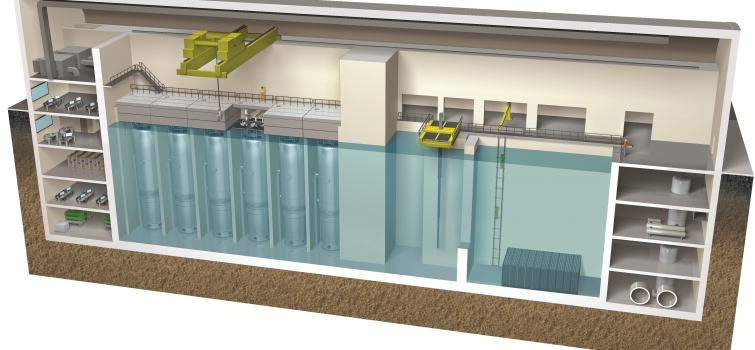
Governor Todd Whitman on Future Nuclear Power, SMRs
In a blog for the Wall Street Journal, former Governor of New Jersey and ASP Board Member Christine Todd Whitman wrote on the future of nuclear energy. Governor Whitman explained in her blog the great potential of “small modular reactors” (SMR) in addressing both the demand for energy and the need to reduce carbon emissions. Meeting both of these requirements has been a major barrier in addressing climate and energy security needs.
“Success in this double-barrel challenge will require energy and environmental policy that recognizes the rapidly evolving variables in both disciplines, as well as technology advances that will be a key driver in our success. One example: Renewable energy has grown dramatically and is a big part of the solution, but because of its intermittent production and lack of energy storage, cannot meet a significant growth in 24/7 electricity demand.”
Governor Whitman went on to explain that an appealing solution to this problem is the use of small modular reactors, a nuclear technology which is already being developed.
“Now in the testing process, the first small modular reactors (SMRs) could be powering American homes beginning around 2025. SMRs produce up to 300 megawatts of electricity–enough to power 238,000 homes, according to the U.S. Energy Information Administration. SMRs, like today’s nuclear energy facilities, produce electricity without producing carbon emissions or other pollutants. Unlike today’s facilities, SMRs will be built in factories and shipped to sites for installation. Plus, they can be built in modules to more closely follow increases in the demand for electricity.”
Nuclear power is controversial though due to the risk of meltdown, however SMRs do not carry the same risk of meltdown that conventional nuclear energy poses.
“One of the biggest advantages of SMRs is the safety benefits. Because their energy production results from natural forces such as gravity, convection and conduction, human error is removed from the equation. Moreover, if natural disasters were to strike an SMR site, no operator action will be needed to shut down the reactor because neither outside electric nor external water supplies is needed for cooling. Even more importantly, SMRs remove all possibility of heat building up in the reactor, which can cause fuel damage, and ultimately, a meltdown.”
Governor Whitman was also keen to point out that not only do SMRs provide tremendous opportunity for safe and clean energy, but present an economic opportunity for the U.S. to become a key energy exporter through SMRs.
“The next 30 years offers an immense opportunity to bring online SMRs in the global marketplace—creating thousands of American jobs while extending U.S. influence in safe nuclear facility operation around the globe. In that time, expect countries such as Poland, Russia, China, France, Korea and emerging economies to make SMRs a significant part of their electricity mix.”
The development of SMRs provide a new avenue for the U.S. to address its energy and climate security problems, while simultaneously expanding its influence as a source of energy globally. As both global demand for energy and a need to curb emissions rise, the demand for technology such as that of the SMR will be increasingly important to U.S. interests.






